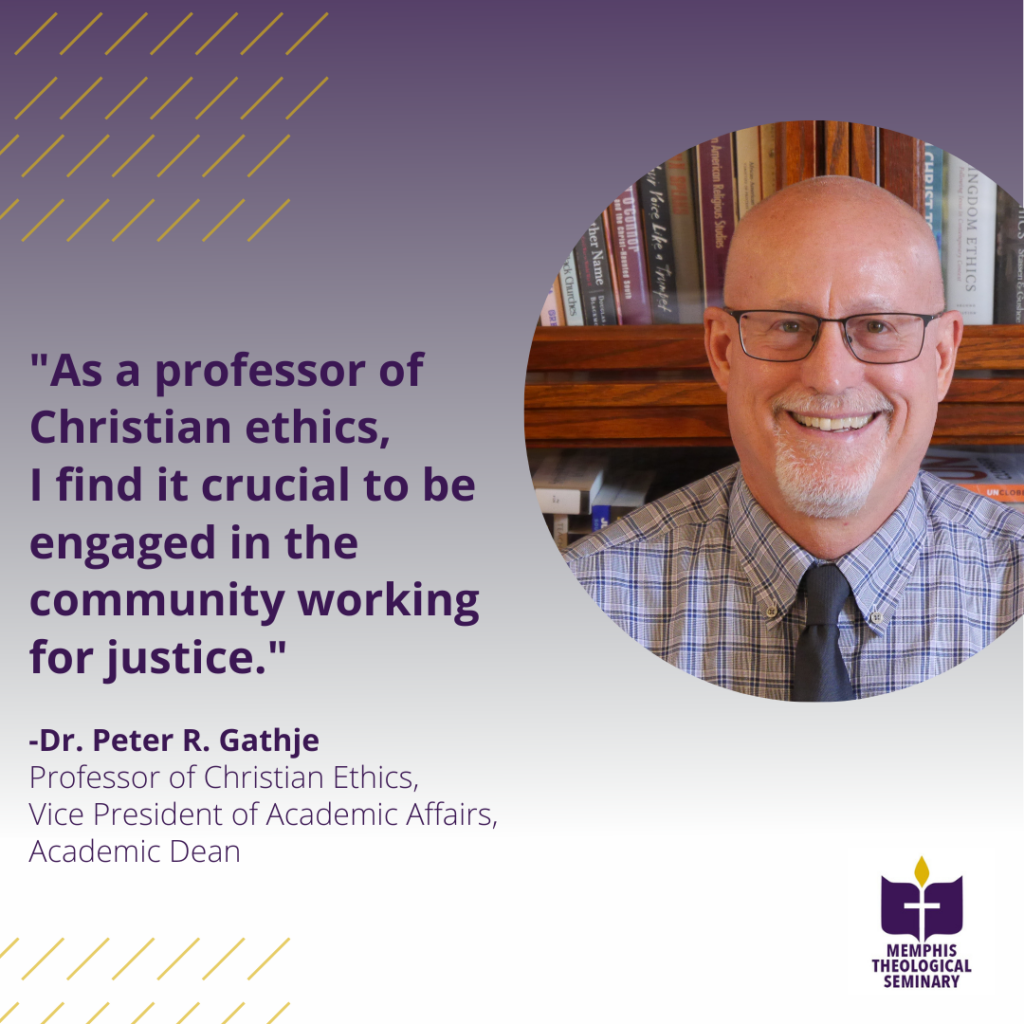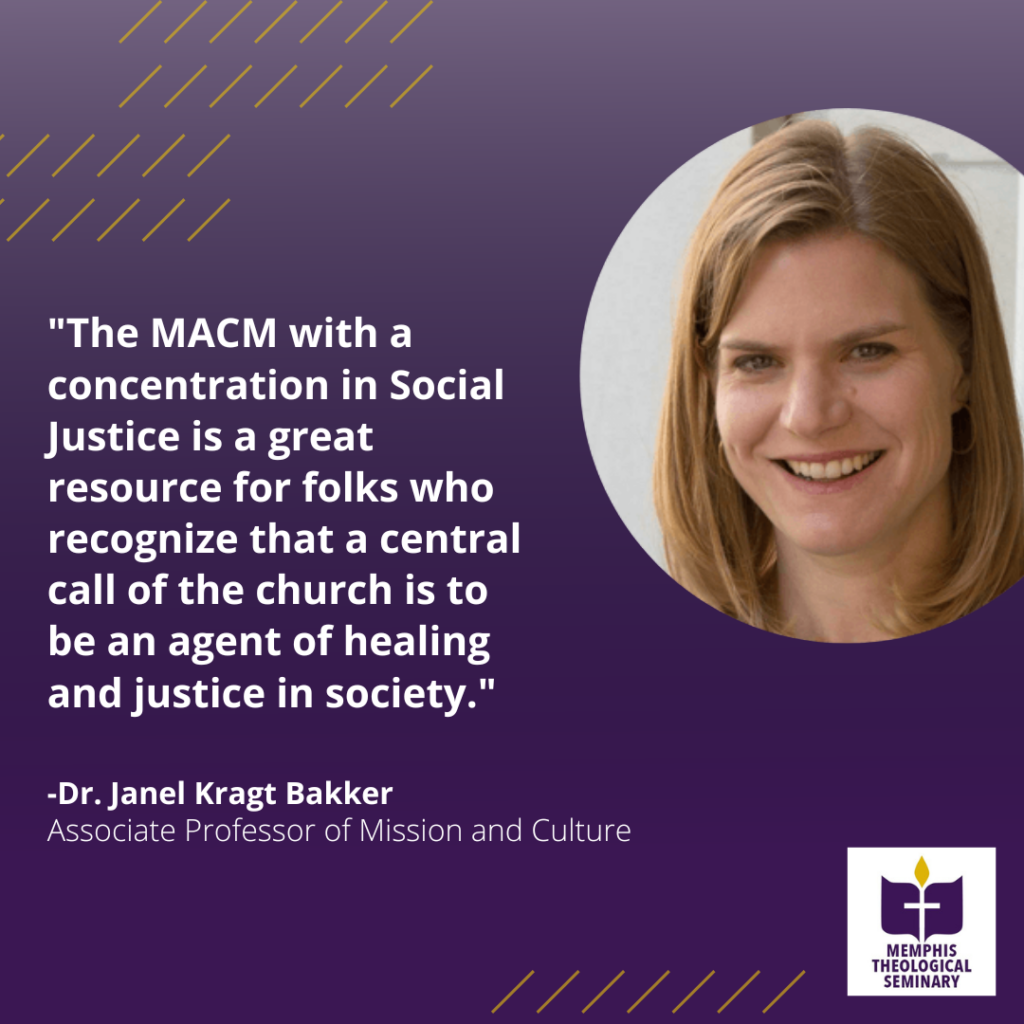The Master of Arts in Christian Ministry is a degree specifically designed for persons who desire knowledge and skills in a particular area of ministry outside of congregational leadership.
The MACM has concentrations in Chaplaincy, Christian Education, and Social Justice. Each of these concentrations features courses specific to the ministry specialization, along with internships and practicums in which theological study is intertwined with experience in a ministry setting, including a capstone experience in the MACM Integrative Seminar taken in their last semester of studies. Students complete 48 credit hours for the MACM degree, compared to the 84 hours required for the MDiv degree.
The Social Justice specialization draws upon the history of social justice movements active in Memphis along with the wide array of nonprofits and other social justice organizations in this area to create courses that integrate theological study with practical skills for social change. Dr. Janel Kragt Bakker and Dr. Peter R. Gathje, both of whom have extensive experience with non-profits and justice organizations, are the lead faculty in this specialization.

Dr. Peter R. Gathje is a founder and co-director of Manna House, a place of hospitality in the Catholic Worker Tradition located in Memphis. He says, “As a professor of Christian ethics, I find it crucial to be engaged in the community working for justice. Justice struggles raise the essential Christian ethics question: how does my character and the contours of our community come to embody the Gospel of Jesus Christ? I need to put this call to justice into action, or my words as a professor will become hollow and devoid of meaning.
I invite students who share a hunger for justice, for the well-being of others and of the whole of God’s creation, to find in their studies at MTS, the theological, spiritual, and practical social organizing skills needed to work for justice. With the abundance of justice organizations in Memphis and the Mid-South, this is an ideal place to study and to get engaged with justice struggles.”
Dr. Janel Kragt Bakker, the Associate Professor of Mission and Culture at MTS, says, “In the broader arena of social justice, I’m especially interested in the practice of restorative justice, and how restorative justice intersects with the criminal justice system. ‘Jesus, Jails, and Justice,’ is an immersion course that I’ve taught at MTS several times, in which restorative justice is a kind of guiding framework. In that course, students are invited into restorative analysis while visiting courtrooms and correctional facilities. They are also exposed to the work of a number of local ministries and organizations that advocate for a restorative approach to justice.

For several semesters I have also taught in the Rhodes College Liberal Arts in Prison Program which offers a 12-credit program at the West Tennessee State Penitentiary. So much of our criminal justice system is based on a retributive model of punishment or deterrence, at best, rather than people being restored into communities. And of course, the criminal justice system often disregards how people’s lack of privilege and traumatic experiences might put them in contact with the criminal justice system to begin with.
The MACM provides a strong education for folks who are interested or already working in the non-profit sector, who want to do social justice work through their congregations, or who seek to strengthen their advocacy efforts in their communities. Memphis has a rich field of non-profits organizations, and students in the MACM program have ample opportunity to learn in the field through their degree program. The MACM with a Social Justice concentration is oriented around theology, social theory, and best practices. It encourages students to work for social justice in a spirit of solidarity and connection with those at the margins or society, rather than judgement or paternalism. The degree program is a great resource for folks who recognize that a central call of the church is to be an agent of healing and justice in society.
The diversity of the student body at MTS also affords a really good opportunity to practice learning and serving in the context of diversity. And I think that’s something that makes MTS pretty unique compared to a lot of other places. The classroom itself becomes a laboratory for building solidarity and fellowship across social divides.”
